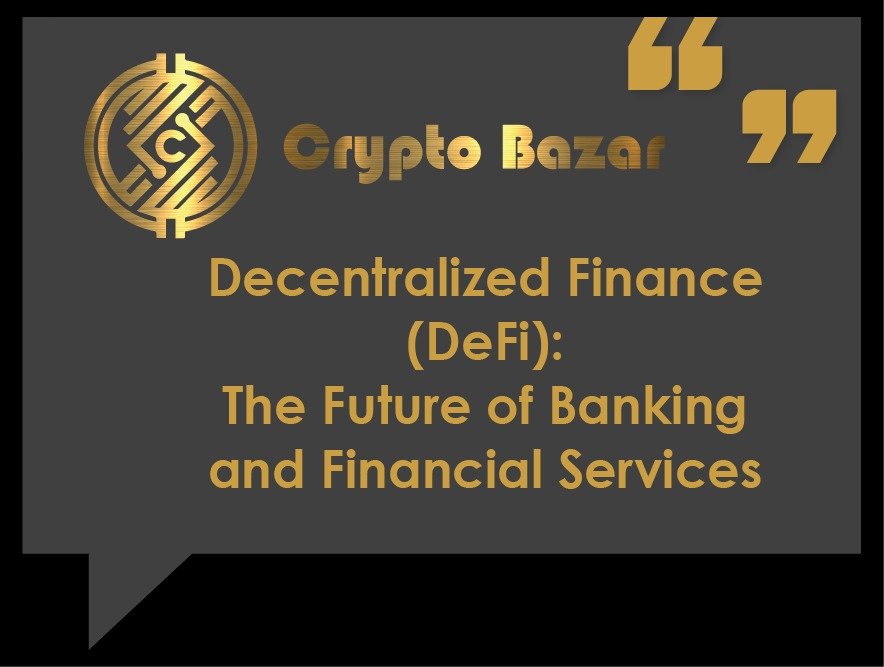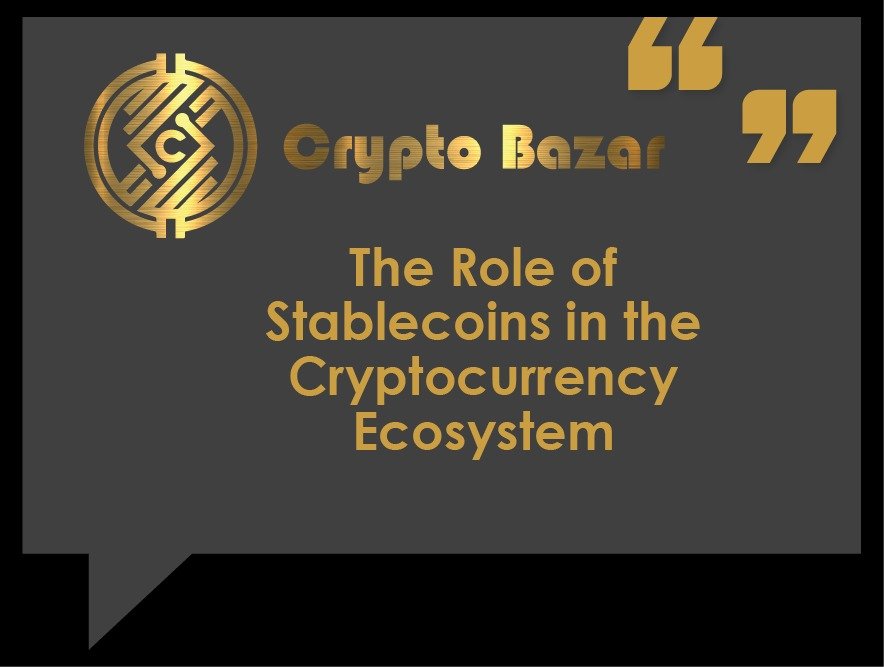The emergence of Decentralized Finance (DeFi) has significantly altered the financial landscape in recent years. This innovative sector is utilizing blockchain technology to establish an economic system that is both open and permissionless and that functions independently of conventional financial institutions and banks. DeFi is poised to revolutionize our perspectives on banking, lending, and investing as it develops. DeFi, its fundamental components, advantages, and potential challenges in revolutionizing financial services will be the subject of this article.
What is Decentralized Financ
Decentralized Finance (DeFi) is a collection of financial services powered by blockchain technology that eliminates intermediaries such as banks, brokers, and payment processors. Smart contracts, self-executing contracts with the agreement’s provisions directly encoded into code, allow users to access various financial services, such as lending, borrowing, trading, and earning interest, without relying on traditional financial systems. This is achieved through the use of DeFi platforms.
Core Components of DeFi
- Lending and Borrowing Platforms: DeFi allows users to lend their cryptocurrencies to others in exchange for interest. Platforms like Aave and Compound enable users to deposit assets and earn interest or borrow against their crypto holdings.
- Decentralized Exchanges (DEXs): Unlike traditional exchanges, DEXs allow users to trade cryptocurrencies directly with one another. Platforms like Uniswap and SushiSwap facilitate peer-to-peer trading without the need for a central authority.
- Stablecoins: These cryptocurrencies are pegged to stable assets, like the US dollar, and are commonly used in DeFi to provide a stable medium of exchange. Examples include USDC and DAI, which allow users to transact without the volatility typical of cryptocurrencies.
- Yield Farming and Liquidity Mining: Users can earn rewards by providing liquidity to DeFi platforms. Yield farming involves staking or lending assets to earn interest, while liquidity mining rewards users for adding liquidity to decentralized exchanges.
- Insurance Protocols: DeFi also includes decentralized insurance services, providing coverage against risks associated with smart contract failures or hacks. Platforms like Nexus Mutual allow users to purchase insurance in a peer-to-peer manner.
Advantages of DeFi
- Accessibility
DeFi platforms are open to anyone with an internet connection, providing financial services to unbanked populations around the world. Users can participate in the global economy without the need for traditional banking infrastructure.
- Transparency
All transactions on DeFi platforms are recorded on public blockchains, providing transparency and accountability. Users can verify the integrity of transactions and the smart contracts that govern them, reducing the risk of fraud.
- Lower Costs
By eliminating intermediaries, DeFi can significantly reduce transaction fees and service charges associated with traditional financial services. Users can access financial products at a fraction of the cost.
- Innovative Financial Products
DeFi is fostering a wave of innovation in financial services. New products, such as synthetic assets and decentralized autonomous organizations (DAOs), are emerging, offering users more diverse options for investing and managing assets.
- Greater Control Over Assets
DeFi empowers users to retain control over their assets. Unlike traditional finance, where institutions hold and manage your funds, DeFi allows users to interact directly with their assets through wallets and smart contracts.
Challenges Facing DeFi
While the potential of DeFi is immense, it also faces several challenges:
- Security Risks
The reliance on smart contracts introduces vulnerabilities. Bugs or exploits can lead to significant financial losses. High-profile hacks and security breaches have raised concerns about the safety of funds on DeFi platforms.
- Regulatory Uncertainty
As DeFi grows, so does scrutiny from regulators. The lack of a centralized authority poses challenges in terms of compliance with existing financial regulations. Governments are grappling with how to regulate this new landscape without stifling innovation.
- User Experience
The user experience in DeFi can be complex and intimidating, particularly for newcomers. The need for technical knowledge, such as managing private keys and navigating decentralized platforms, can deter widespread adoption.
- Market Volatility
While DeFi offers opportunities for high returns, it is also subject to the same volatility that plagues the cryptocurrency market. Users need to be aware of the risks associated with lending, borrowing, and trading in a volatile environment.
The Future of DeFi
Despite the challenges, the future of DeFi appears promising. As technology evolves, we can expect:
- Interoperability: Increased collaboration between different DeFi protocols will enhance user experience and create a more interconnected financial ecosystem.
- Institutional Adoption: Traditional financial institutions are beginning to explore DeFi solutions. As they integrate these innovations, we may see a blending of traditional and decentralized finance.
- Enhanced Security Measures: Ongoing advancements in security protocols will help mitigate risks, making DeFi safer for users.
- Regulatory Clarity: As governments establish clearer regulatory frameworks, DeFi will likely gain legitimacy, encouraging broader adoption.
Decentralized finance is on the brink of transforming how we approach financial services and financing. DeFi provides unparalleled innovation, transparency, and accessibility by utilizing blockchain technology. Although obstacles persist, there is an immense potential to establish a financial system that is both more equitable and efficient. DeFi’s principles can be embraced and understood to empower individuals and transform the global economy for the best as we navigate this transformative era. The DeFi revolution is a phenomenon that should be closely monitored, regardless of whether one is an investor, developer, or simply curious about the future of finance.



